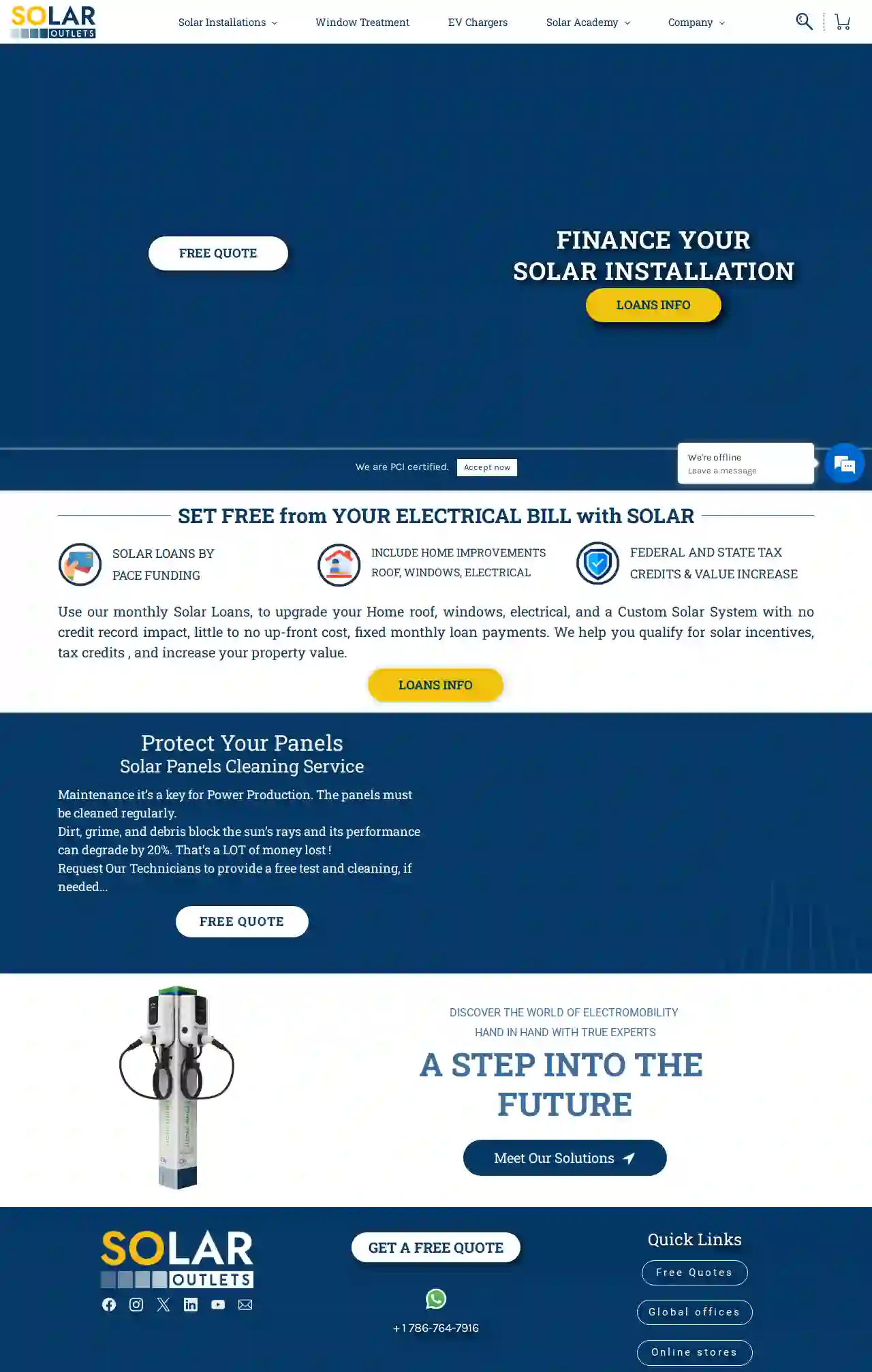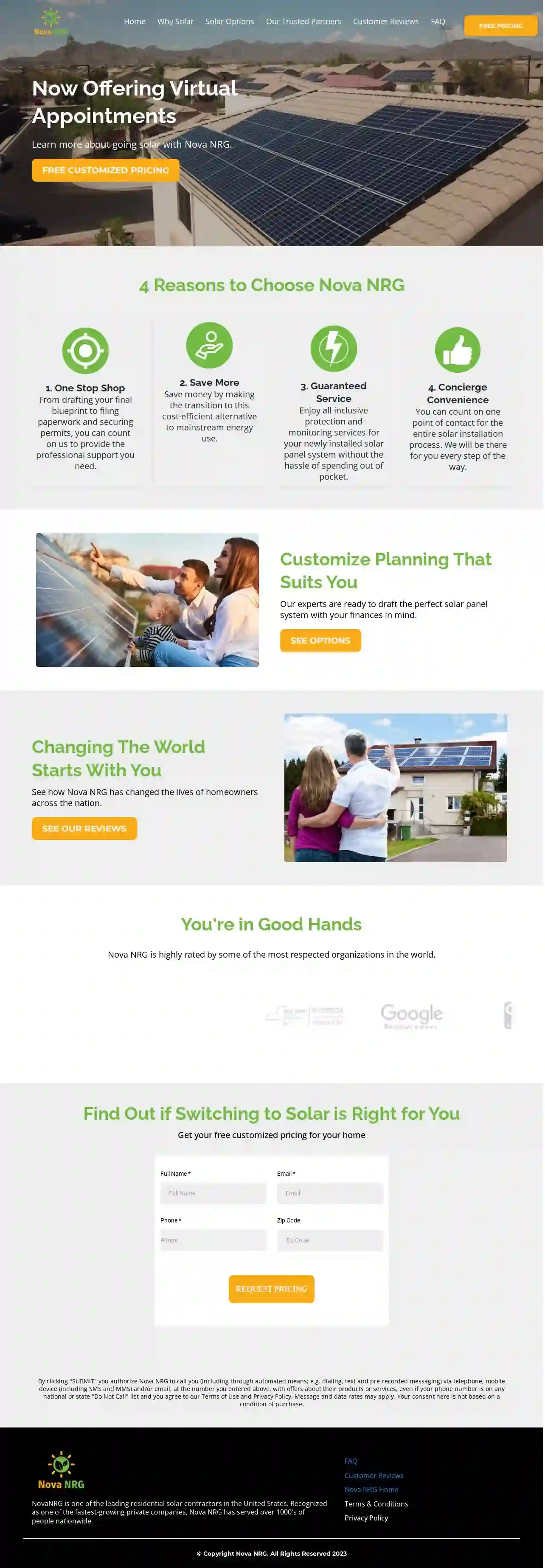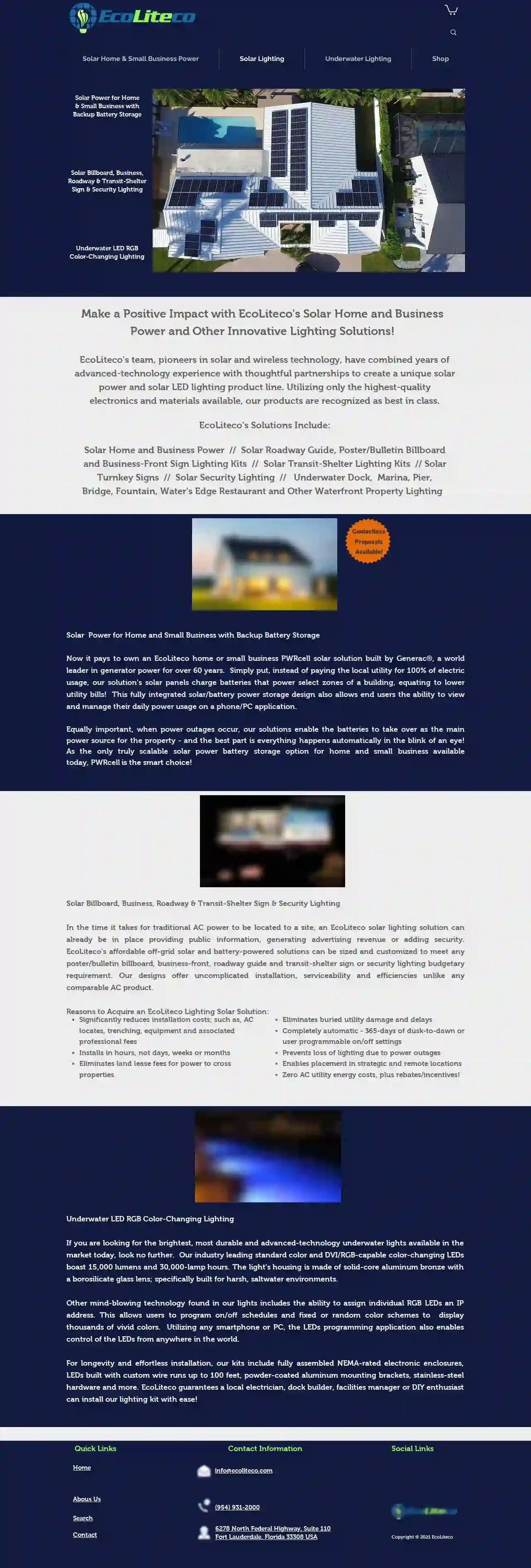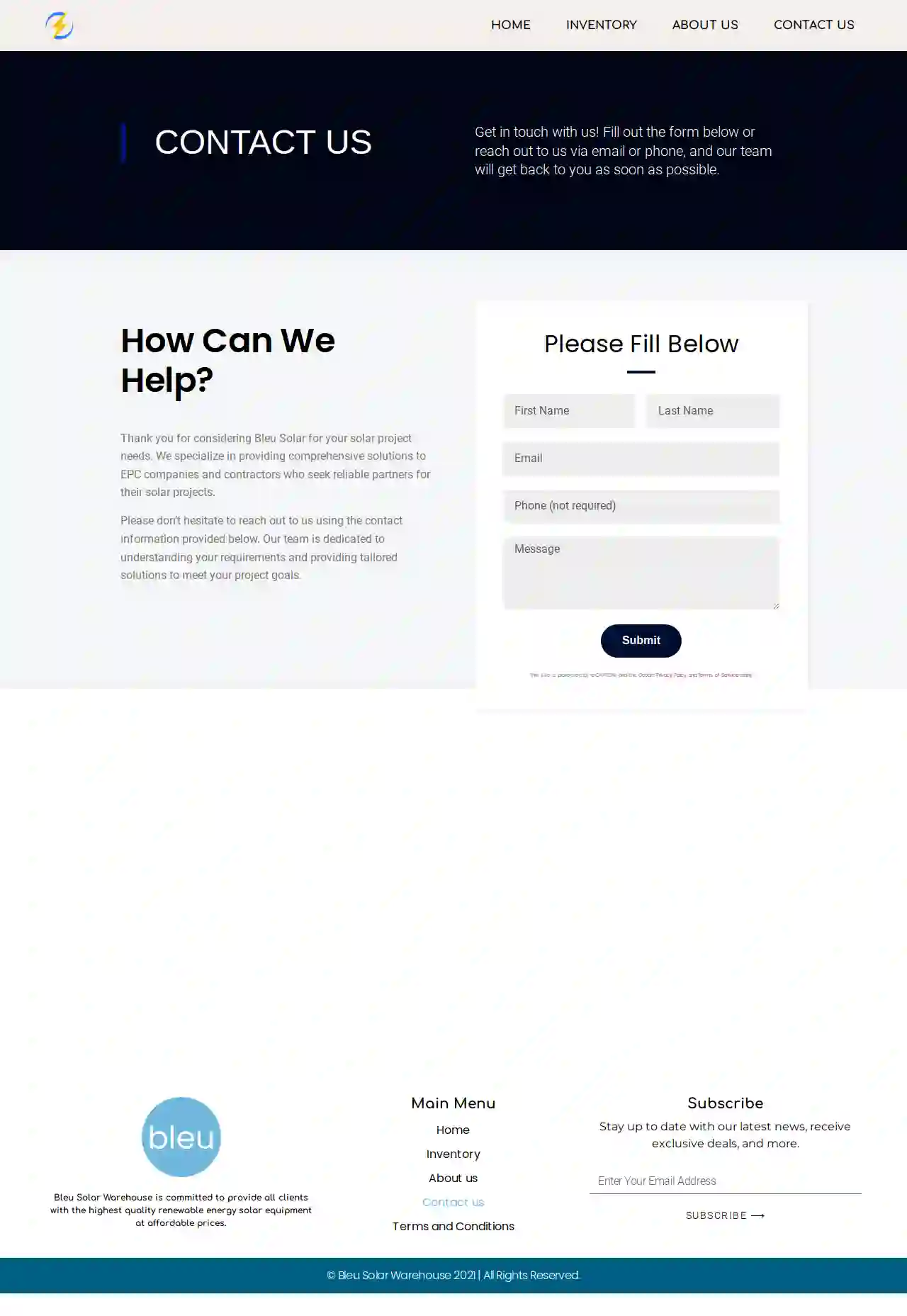Commercial Solar Installers Deltona
Find Commercial Solar Installer in Deltona
Receive up to 3 Commercial Solar Panel Installation quotes for your project today! Compare profiles, reviews, accreditations, portfolio, etc... and choose the best service.

Optimus Energy Solutions
4.69 reviewsMount Dora, FL, 1107 Robie Avenue, 32757, USOptimus Energy Solutions is a Florida-based company that specializes in providing renewable energy solutions, including residential and commercial solar installations, EV charging systems, and roofer resources. The company aims to make renewable energy accessible to individuals and businesses throughout Florida, Georgia, and the Southeast. With a combined 60+ years of project management, financial management, and construction management experience, the Optimus Energy Solutions team is dedicated to education and providing long-term system operation and investor satisfaction.
- Services
- Why Us?
- Accreditations
- Our Team
- Testimonials
- Gallery
Get Quote
SOLAR GLASS WINDOW TINTING & SECURITY SAFETY FILM
4.113 reviews407 Lincoln Rd., Suite 6H, Miami Beach, 33139, USAAA Solar Glass Window Tinting & Security Safety Film is a family-owned and operated business that has been providing first class service and products since 1983. Based in Miami Beach and Fort Lauderdale, Florida, they service Broward County, Palm Beach County, and Miami-Dade County. They specialize in Residential, Commercial, and Marine window tinting, offering a wide variety of Decorative Window Film and security safety film. Their products include Ceramic Film, Safety/Security Films, RF Blocking, and more. They are licensed and insured contractors with 36 years of experience, offering a lifetime warranty on all their films.
- Services
- Why Us?
- Accreditations
- Our Team
- Testimonials
- Gallery
Get Quote
ProSolar Systems Florida
55 reviewsWilton Manors, FL, United States, 1100 W Oakland Park Blvd Unit 8, 33311, USProSolar Florida is a leading provider of solar energy solutions, offering a range of services including residential and commercial solar energy, net metering, roof installation, solar reinstallation, Tesla Powerwall certified installer, Tesla Solar Roof, and Duracell Powercenter. With a focus on sustainability and energy independence, ProSolar Florida aims to help individuals and businesses transition to cleaner energy sources.
- Services
- Why Us?
- Accreditations
- Our Team
- Testimonials
- Gallery
Get Quote
Southtech Solar
52 reviewsN/A, Orlando, USSouthtech Solar is a company dedicated to saving customers' money on their energy bills by using green energy to conserve the planet's natural resources. Their mission is to deliver quality service, offer a compelling product, and demonstrate the relentless pursuit of excellence. They believe in supporting a better environment while saving clients' money on their energy bills.
- Services
- Why Us?
- Accreditations
- Our Team
- Testimonials
- Gallery
Get Quote
Sun City Solar
518 reviews123 Solar Way, Suite 100, Phoenix, 85001, USSunCitySolarPower is on a mission to make solar energy accessible and affordable for everyone. With over 10 years of experience in the solar installation industry, they have successfully completed over 500 installations and are committed to providing high-quality services to all their customers.
- Services
- Why Us?
- Accreditations
- Our Team
- Testimonials
- Gallery
Get Quote
Solar Outlets LLC
51 reviewsMiami, USSolar Outlets is a strategic company in the solar market, with business in distribution and integration, project development, business solutions, services and solar education. We offer a full portfolio for solar projects of all scales that includes advisory, procurement, engineering, project development, supply, finance, and construction services. We focuses our objective on build a supply chain to develop solar companies around the world. Offering the best solar components and professional training to success. Our mission is to be at the forefront of the energy revolution. Our mission is to expand the access to the decentralized energy. Bring the benefits of renewable energies to the whole people and make an efficient and healthier planet.
- Services
- Why Us?
- Accreditations
- Our Team
- Gallery
Get Quote
Nova NRG
4.9121 reviewsBeverly Hills, CA, 123 Solar Way, 90210, USNova NRG is a leading residential solar contractor in the United States, recognized as one of the fastest-growing private companies. They have served over 1000's of people nationwide. Nova NRG offers a one-stop shop for solar installation, including drafting final blueprints, filing paperwork, and securing permits. They provide cost-efficient solar options, guaranteed service, and concierge convenience with a single point of contact throughout the installation process.
- Services
- Why Us?
- Accreditations
- Our Team
- Testimonials
- Gallery
Get Quote
EcoLiteco
Fort Lauderdale, Florida, 6278 North Federal Highway, Suite 110, 33308, USEcoLiteco is a pioneer in solar and wireless technology, offering a unique solar power and solar LED lighting product line. Their solutions include solar home and business power with backup battery storage, solar roadway guide, poster/bulletin billboard and business-front sign lighting kits, solar transit-shelter lighting kits, solar turnkey signs, solar security lighting, and underwater dock, marina, pier, bridge, fountain, water's edge restaurant and other waterfront property lighting. They provide contactless proposals and offer a scalable solar power battery storage option for home and small business.
- Services
- Why Us?
- Accreditations
- Our Team
- Testimonials
- Gallery
Get Quote
Bleu Solar Warehouse
55 reviews100 E Pine St, Orlando, FL 32801, 32801, USBleu Solar is a comprehensive solar distribution partner that specializes in providing top-tier solar panels sourced directly from manufacturers. They offer competitive pricing on large quantity orders and tailored solar solutions to meet unique project requirements. Their team of solar experts is dedicated to guiding clients through their solar projects every step of the way. Bleu Solar also offers seamless logistics and delivery options for hassle-free procurement shipped directly to the job site.
- Services
- Why Us?
- Gallery
Get Quote
Diamond Solar LLC
544 reviews123 Solar Way, Suite 100, Orlando, 32132, USDiamond Solar LLC is a trusted Florida solar company dedicated to providing top-notch solar electric energy installation services. With a team of experienced professionals, they offer customized solar energy solutions tailored to the specific needs and requirements of each household. Their services include solar installation and maintenance, battery backups, pergolas and ground mounts, and financing for solar projects. Diamond Solar LLC aims to provide energy independence, cost savings, reliability, and customization for their clients.
- Services
- Why Us?
- Accreditations
- Our Team
- Testimonials
- Gallery
Get Quote
Over 4,210+ Solar Businesses on our platform
Our solar installers operate in Deltona and surroundings!
SolarCompaniesHub has curated and vetted the Best Solar Installers in Deltona. Find a top & trustworthy contractor today.
Frequently Asked Questions About Commercial Solar Installations
- Reduced Energy Costs: Solar energy can significantly lower your monthly electricity bills, freeing up capital for other business expenses.
- Predictable Energy Expenses: Solar energy provides a hedge against fluctuating energy prices, allowing you to better forecast and manage your budget.
- Increased Property Value: Commercial properties with solar installations often have higher property values and can be more attractive to potential buyers or tenants.
- Environmental Sustainability: Solar energy is a clean and renewable energy source, reducing your carbon footprint and demonstrating your commitment to environmental responsibility.
- Tax Benefits and Incentives: Many governments offer tax credits, rebates, and other incentives to make commercial solar installations more affordable.
- Enhanced Brand Image: Going solar can boost your brand image and reputation, appealing to environmentally conscious customers and employees.
- Full Retail Net Metering: The most favorable policy, where you receive full retail credit for excess solar energy sent to the grid. This means you get the same price for the electricity you sell back as you pay for the electricity you buy from the utility.
- Time-of-Use (TOU) Net Metering: The value of the credits you earn varies depending on the time of day you export electricity to the grid. Higher credits are typically offered during peak demand periods.
- Net Billing: You receive a lower rate for excess solar energy than the retail rate you pay for electricity.
- Feed-in Tariffs (FITs): A separate meter is used to measure the solar energy you export to the grid, and you are paid a fixed rate per kilowatt-hour for this energy, which may be different from the retail electricity rate.
What are the benefits of solar energy for my business?
What happens to my commercial solar system during a power outage?
What is a net metering agreement, and why is it important?
Are there different types of net metering policies?
What are the benefits of solar energy for my business?
- Reduced Energy Costs: Solar energy can significantly lower your monthly electricity bills, freeing up capital for other business expenses.
- Predictable Energy Expenses: Solar energy provides a hedge against fluctuating energy prices, allowing you to better forecast and manage your budget.
- Increased Property Value: Commercial properties with solar installations often have higher property values and can be more attractive to potential buyers or tenants.
- Environmental Sustainability: Solar energy is a clean and renewable energy source, reducing your carbon footprint and demonstrating your commitment to environmental responsibility.
- Tax Benefits and Incentives: Many governments offer tax credits, rebates, and other incentives to make commercial solar installations more affordable.
- Enhanced Brand Image: Going solar can boost your brand image and reputation, appealing to environmentally conscious customers and employees.
What happens to my commercial solar system during a power outage?
What is a net metering agreement, and why is it important?
Are there different types of net metering policies?
- Full Retail Net Metering: The most favorable policy, where you receive full retail credit for excess solar energy sent to the grid. This means you get the same price for the electricity you sell back as you pay for the electricity you buy from the utility.
- Time-of-Use (TOU) Net Metering: The value of the credits you earn varies depending on the time of day you export electricity to the grid. Higher credits are typically offered during peak demand periods.
- Net Billing: You receive a lower rate for excess solar energy than the retail rate you pay for electricity.
- Feed-in Tariffs (FITs): A separate meter is used to measure the solar energy you export to the grid, and you are paid a fixed rate per kilowatt-hour for this energy, which may be different from the retail electricity rate.